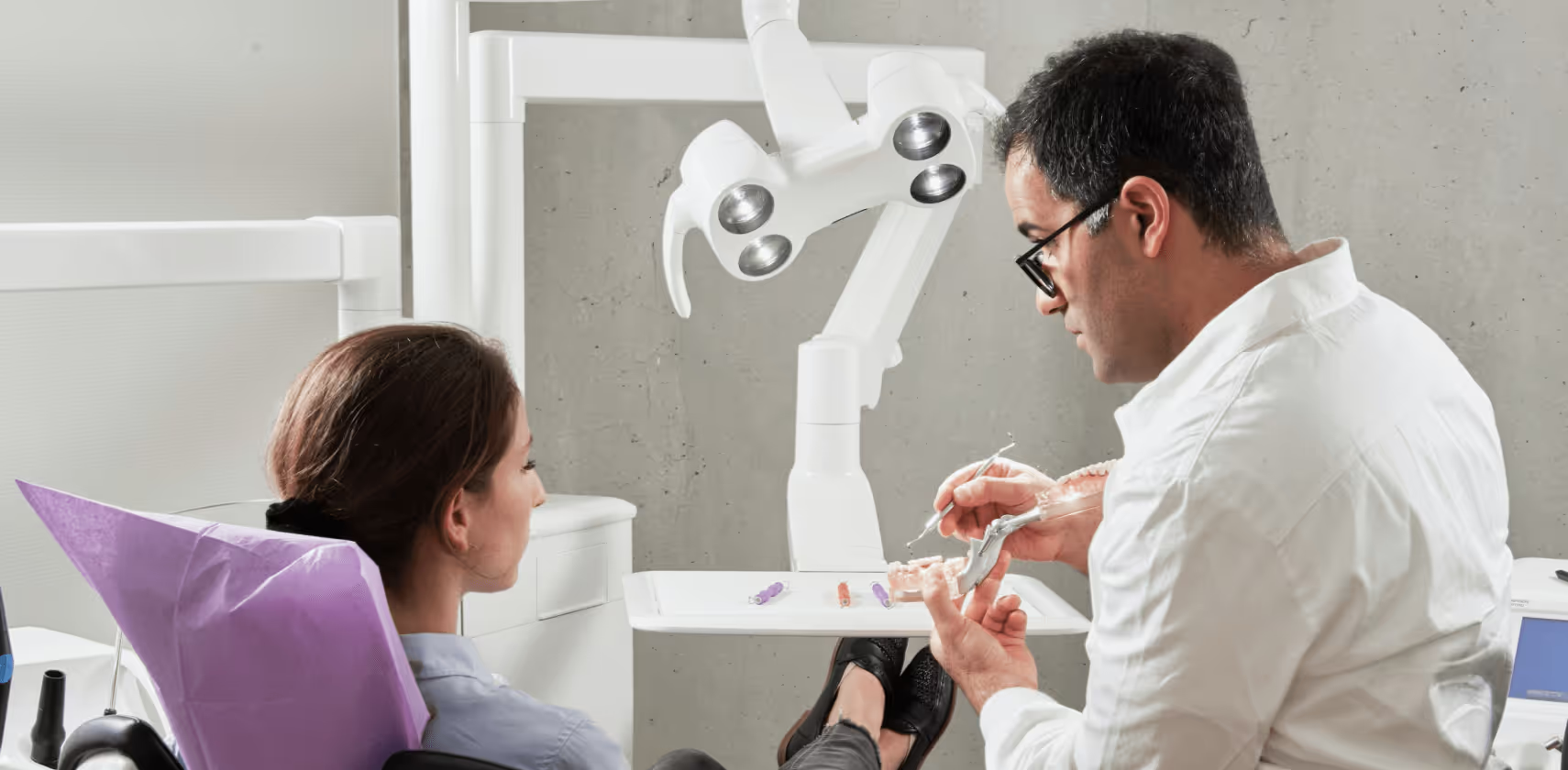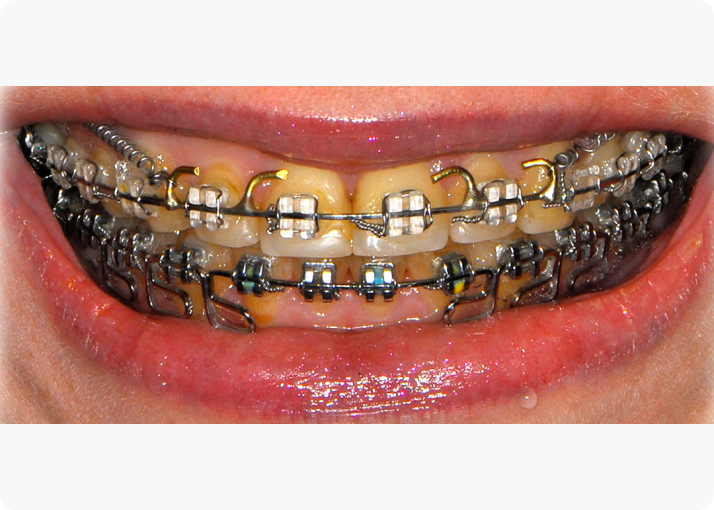Restoration of the dental arch: when dental prosthetics are necessary
One of the most common cases when dental prosthetics are necessary is a complete or partial loss of teeth. This can happen for many reasons, such as caries, trauma, periodontitis, genetic factors, and many others. The absence of teeth can lead to displacement of those that remain and disruption of the bite. This leads to pain in the jaw and gums, problems with chewing and speech, as well as cosmetic defects.
In addition, prosthetics may be needed in the presence of tooth deformities, incorrect bite, tooth erosion or abrasion, and other issues. However, before considering prosthetics, it is necessary to consult a dentist who will conduct a complete examination and determine which treatment method will be most effective in your case.

Types of prosthetics: which one is right for you?
There are three types of dental prosthetics:
- Non-removable
- Partially removable
- Completely removable
At IODENT clinic, we perform prosthetics of any complexity, depending on the indications and your budget.
The most modern way of restoring teeth is non-removable prosthetics, which are fixed in the patient's mouth so that the patient cannot remove them. These prosthetics are reliable, practical, and aesthetic.
Prosthetics with metal-free structures
Metal-free dental structures are very popular for restoring teeth, especially front teeth. The main directions of prosthetics with the help of metal-free structures are all-ceramic restoration and ceramics on zirconium oxide.
The advantages of metal-free structures are their strength, durability, biological compatibility with oral tissues, absence of allergy risk, aesthetics, low thermal conductivity, and the possibility of prosthetics after dental implantation.
Types of metal-free structures:
- Zirconium crowns
- Ceramic veneers
- Inlays
- Onlays
- Bridge-like prosthetics
Implant-based prosthetics is a more effective option for restoring both single-tooth loss and complete adentia. This method provides high aesthetics, does not harm healthy neighboring teeth, and has a long service life.

Prosthetics on 4 and 6 implants is an effective solution for people with a complete absence of teeth on the upper or lower jaw, or both simultaneously. With the help of advanced techniques All-on-6 and All-on-4, implantation of edentulous jaws can be performed even in conditions of bone deficiency and allows restoring 10-12 teeth on one jaw in one visit.
Prosthetics using articulators (analog and digital) – the articulator allows to accurately reproduce the movement of the temporomandibular joints and diagnose dysfunction of the chewing apparatus. Based on this device, an individual orthopedic structure can be created for each patient.
Removable dentures are used for partial or complete tooth loss. Patients can remove these dentures on their own without the need to see a dentist.
Currently, the most common types of removable dentures are plate and clasp-retained dentures, which attach to teeth or crowns. Both options are not as aesthetic or comfortable and cannot fully replace missing teeth. However, they have one important advantage over implantation - affordability.
Conditionally removable dentures on implants are attached to abutments, which are fixed to implants using threaded connections or dental cement and can only be removed by a dentist. This method is used for partial or complete edentulism. The advantages of this method include a natural feel during use, aesthetic appearance, and lower cost, as fewer implants are needed.
Prosthetics at IODENT clinic
IODENT clinic uses modern digital technologies for prosthetics, which allow restoring the dental arch in a short period of time. The clinic's doctors use computer diagnostics and 3D scanning of teeth and face to obtain virtual data that enables them to perform all stages of treatment, from planning and modeling future constructions to invasive procedures directly in the patient's oral cavity. Additionally, the clinic offers services for manufacturing zirconia crowns, ceramic veneers, inlays, and overlays using CAD/CAM computer technologies.
To take optical impressions of teeth and jaws, the clinic uses a modern intraoral scanner 3Shape TRIOS. It provides high-quality imaging and scanning speed, which significantly reduces the time for manufacturing prostheses and ensures their accuracy and quality.
We work with patients of any age, regardless of the complexity of the cases. Our specialists are always ready to provide professional consultation and help solve any dental problems.



%201.png)
%202.png)














